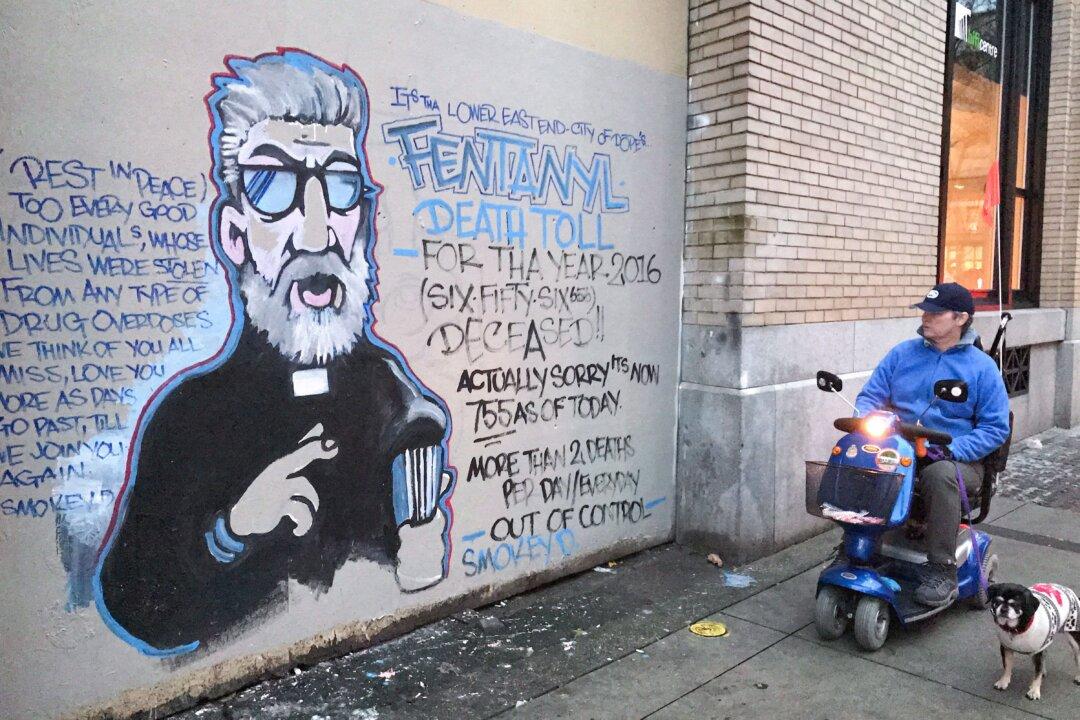As British Columbia’s temporary decriminalization of hard drugs kicks in this week, Conservative Leader Pierre Poilievre says relaxation of illicit drug access and lax law enforcement in the province have led to surging overdose deaths and rising crime.
Effective Jan. 31, B.C. residents aged 18 and over won’t be arrested or charged if found in possession of less than 2.5 grams of any combination of cocaine, methamphetamine, MDMA, heroin, fentanyl, and/or morphine, for personal use, nor will their drugs be seized. A three-year experiment period for this policy will be in place until Jan. 31, 2026.





